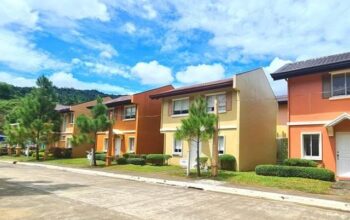Singapore, a city-state known for its economic stability, strategic location, and robust real estate market, has long been a prime destination for property investors. Among the various property types available, condominiums, or “condos” as they are commonly referred to, stand out as a popular choice for investors seeking capital appreciation. If you’re considering investing in Singapore condos with the goal of capital appreciation, here’s a comprehensive guide to help you navigate the process effectively.
Understanding Capital Appreciation
Before diving into the specifics of investing in Singapore condos, it’s essential to understand what capital appreciation means. Capital appreciation refers to the increase in the value of an asset over time. For real estate, this means that the property you purchase today will ideally be worth more in the future. This increase in value can be driven by a variety of factors, including improvements in the property itself, rising demand in the real estate market, or broader economic and infrastructural developments.
Why Invest in Singapore Condos?
- Economic Stability: Singapore boasts one of the most stable economies in Asia, with a high GDP per capita and a well-regulated financial system. This stability provides a solid foundation for property values to appreciate over time.
- Strategic Location: Singapore’s strategic location in Southeast Asia makes it a hub for international business and trade. This geographical advantage contributes to a consistent demand for property.
- Robust Legal Framework: The Singapore government has put in place a robust legal framework to protect property investors, which includes clear property laws, a transparent buying process, and a strong enforcement mechanism.
- Infrastructure Development: Ongoing and future infrastructure projects, such as the expansion of public transport networks and new commercial hubs, are expected to drive property values up.

Steps to Invest in Singapore Condos for Capital Appreciation
- Research the MarketBegin by thoroughly researching the Singapore real estate market. Look at historical data on property values, recent sales trends, and projections for future growth. Key resources include property market reports from agencies like URA (Urban Redevelopment Authority) and industry publications.
- Choose the Right LocationLocation is crucial when investing in real estate. In Singapore, some areas have demonstrated more robust capital appreciation than others. For instance, properties in central regions such as Orchard Road, Marina Bay, and Raffles Place are traditionally high-demand areas due to their proximity to business districts, luxury shopping, and entertainment options. However, emerging neighborhoods like Punggol and Woodlands are also gaining attention due to new developments and planned infrastructure improvements.
- Evaluate the Developer and ProjectInvest in reputable developers known for delivering quality projects on time. Research their track record and check reviews from past buyers. Additionally, consider the project’s amenities, design, and potential for future development in the area. Condominiums with innovative designs, luxury amenities, and environmentally sustainable features tend to attract higher demand and, consequently, better capital appreciation.
- Understand the Financing OptionsSingapore offers a variety of financing options for property investors. Familiarize yourself with the rules and regulations regarding loans, including the Loan-to-Value (LTV) ratio, Total Debt Servicing Ratio (TDSR), and Additional Buyer’s Stamp Duty (ABSD). It’s advisable to consult with financial advisors or mortgage brokers to determine the most suitable financing plan for your investment.
- Consider the Market CycleThe real estate market goes through cycles of boom, stabilization, and correction. Timing your investment according to the market cycle can significantly impact your capital appreciation. Investing during a downturn or early in a recovery phase often yields higher returns as property values rise over time.
- Evaluate Rental YieldWhile your primary goal may be capital appreciation, it’s prudent to consider rental yield as well. Rental income can provide a steady cash flow, which can be reinvested or used to cover property expenses. Properties with higher rental yields can also indicate strong demand, which can contribute to capital appreciation.
- Stay Informed About Policy ChangesSingapore’s real estate market is subject to government policies and regulations that can impact property values. Stay informed about any new policies related to property taxes, foreign ownership rules, and market cooling measures. Understanding these regulations will help you anticipate how they might affect your investment.
- Engage a Real Estate AgentA knowledgeable real estate agent can be an invaluable resource in your investment journey. They can provide insights into market trends, identify suitable properties, and help negotiate deals. Choose an agent with a solid track record and deep understanding of the Singapore property market.
- Conduct Due DiligenceBefore making a purchase, conduct thorough due diligence. This includes inspecting the property, verifying ownership, and checking for any legal encumbrances or outstanding debts. Ensuring that all documentation is in order can prevent future complications and safeguard your investment.
- Plan for the Long Term
Real estate investment is typically a long-term commitment. Plan for the long-term by setting realistic investment goals, maintaining the property, and staying patient. Capital appreciation often takes time, and property values may fluctuate in the short term. A long-term perspective will help you ride out market fluctuations and benefit from overall growth. Come and visit https://www.emeraldsofkatong.com.sg/ to receive more information about how to invest in Singapore condos for capital appreciation.
Conclusion
Investing in Singapore condos for capital appreciation can be a rewarding endeavor if approached with careful planning and strategic thinking. By understanding the market, selecting the right location, evaluating developers, and staying informed about market trends and policies, you can enhance your chances of achieving significant capital appreciation. Remember to approach your investment with a long-term mindset, and you’ll be well on your way to making a sound real estate investment in one of Asia’s most dynamic cities.





